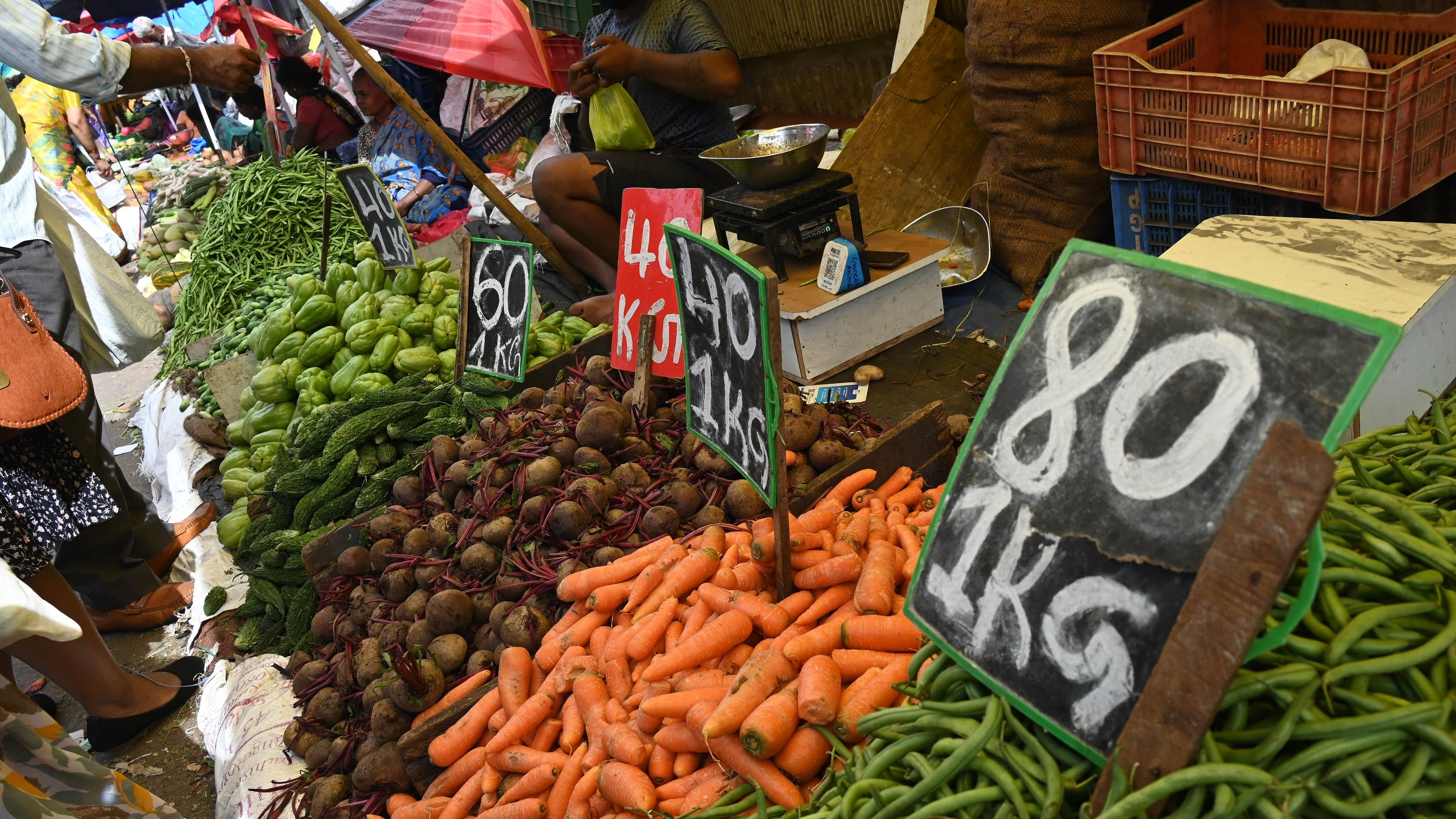
Vegetables at the K R Market in Bengaluru.
Credit: DH Photo/B K Janardhan
Bengaluru: The Central Pollution Control Board (CPCB) has proposed a high-level committee for a comprehensive study to assess the heavy metal contamination of vegetables in Bengaluru.
The development comes after the National Green Tribunal's southern bench sought details on the contamination of the vegetables found in a study by the Environment Management Policy Research Institute (EMPRI). The study of 400 samples of 10 vegetables, first reported by DH on September 24, 2023, stated that iron, cadmium, lead, and nickel were higher than the limits prescribed by the Food and Agriculture Organisation.
The CPCB said the heavy metals and pesticide samples need to be carried out "only at FSSAI-approved laboratories" and the residues in vegetables should be compared "only with the FSSAI prescribed standards" notified by the Ministry of Health and Family Welfare".
"In order to ascertain the correct ground situation with regard to the heavy metals and pesticides in vegetables, further comprehensive study is required," the CPCB said, proposing a five-member committee.
As CPCB labs are not recognised by FSSAI, it said the committee should include members from Food Safety and Standards Association of India (FSSAI) and Indian Institute of Soil Science, Bhopal along with CPCB regional director from Bengaluru, a member each from Karnataka State Pollution Control Board and University of Agricultural Sciences, Bengaluru.
All details related to the study, including the survey, sample size, location and laboratories, would be decided by the committee. It sought four months time to collate the analysis results and finalisation of the report to be submitted to the NGT.
The NGT bench of Justice Pushpa Sathyanarayana and expert member Satyagopal Korlapati, in its hearing on October 15, directed the Board to submit the final report by December 2.